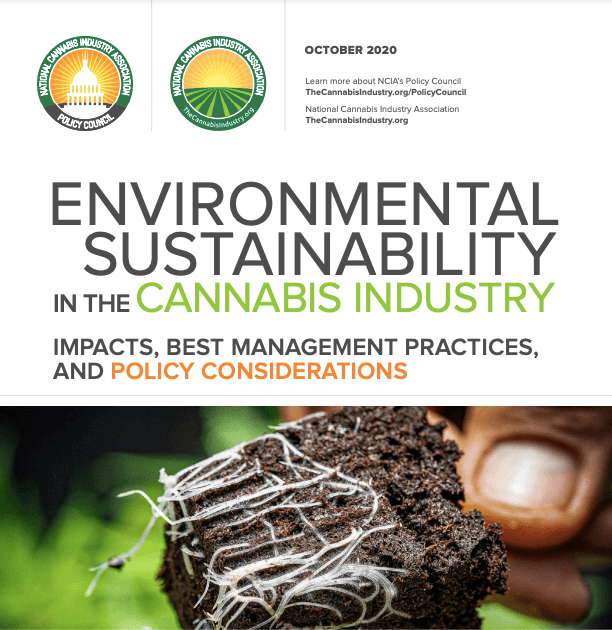 The NCIA environmental committee was formed to write a technical report on “Environmental Impacts, Best Management Practices and Policies for the Cannabis Industry” necessary to position the cannabis industry as a leader in environmental sustainability at the local, state, and national levels and to help inform environmental policy.
The NCIA environmental committee was formed to write a technical report on “Environmental Impacts, Best Management Practices and Policies for the Cannabis Industry” necessary to position the cannabis industry as a leader in environmental sustainability at the local, state, and national levels and to help inform environmental policy.
In this report, we provide a review of the impacts cannabis has on soils and land use, water, energy generation and consumption, air quality, and the challenges associated with waste. Each respective section explores current and emerging best management practices and their corresponding policy considerations. In many cases, existing policies can be broadened or modified to include the cannabis industry. However, the cannabis industry is as unique as the plant itself, and particular growing, processing, and packaging practices may benefit from cannabis-specific policies outlined herein. Legalization of cannabis is an unprecedented opportunity for environmentally sustainable practices to be adopted as the national industry standard from the outset, positioning the cannabis industry to emerge as a leader in environmental sustainability.
NCIA suggests that forward-thinking standard-setting bodies, self-regulatory organizations, and government regulators take note and create workable standards with supporting resources to set the cannabis industry apart as a leader in environmental sustainability. Any such standards should take cost into account, as we don’t want to further encourage illicit market actors by creating unfunded mandates for state-legal operators.

 The NCIA environmental committee was formed to write a technical report on “Environmental Impacts, Best Management Practices and Policies for the Cannabis Industry” necessary to position the cannabis industry as a leader in environmental sustainability at the local, state, and national levels and to help inform environmental policy.
The NCIA environmental committee was formed to write a technical report on “Environmental Impacts, Best Management Practices and Policies for the Cannabis Industry” necessary to position the cannabis industry as a leader in environmental sustainability at the local, state, and national levels and to help inform environmental policy.